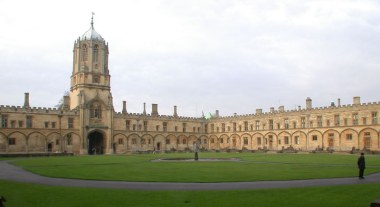Summer Institute in Oxford
06 July 2009
The fifth annual Summer Institute of the World Nuclear University (WNU) has begun at the University of Oxford's Christ Church college.
As the WNU's leading education program, the Summer Institute has until now travelled from continent to continent. The first event took place at Idaho Falls, USA in 2005; the second at Stockholm, Sweden; then Daejon, Korea; and in 2008 at Ottawa, Canada. Each event has brought together around 100 nuclear professionals - identified by their organisations for their leadership potential,- to participate in an intensive and wide-ranging six-week program.
Oxford is set to be the location for the Summer Institute for at least the next three years. John Ritch, president of the WNU, said the new location would give the Summer Institute "a prestigious home that combines a world-class learning environment, proximity to major European nuclear facilities and greatly simplified logistical support for a complex annual program."

The course, which began today, is focused on a series of morning lectures which cover nuclear power's global setting, its international regimes as well as its technology and aspects of its operation. Afternoon practical sessions are designed to foster teamwork and leadership, while the course as a whole is meant to build a global network of potential leaders which now counts some 367 former WNU Fellows from 58 countries.
The WNU is supported by the World Nuclear Association, the OECD Nuclear Energy Agency, the World Association of Nuclear Operators and the International Atomic Energy Agency (IAEA).
The Summer Institute is part of a portfolio of WNU programs all designed to promote learning and leadership in the peaceful applications of nuclear technology. Others include the one-week nuclear industry orientation course held each year in China, Brazil, Argentina, South Africa and Korea, various courses operated under the WNU School of Uranium Production based in Straz, Czech Republic, mainly focused on in-situ leach mining, and occupationally-tailored English courses that have run to date in Romania and South Korea.
Looking ahead, the WNU will from 31 August run an International Forum on Harmonization of Reactor Design Requirements in Manchester, UK. The first forum, which is being run in association with the European Utilities Requirement organisation, will have a European focus. Further forums are expected to run in Asia and America. In May 2010, the WNU Coordinating Centre will launch its Annual School on Radioisotopes, aimed at promising young professionals working in radioisotope-related industries, research institutes and universities. The school will be held in South Korea for the first year, with the location expected to move from continent to continent at least for the first few years.